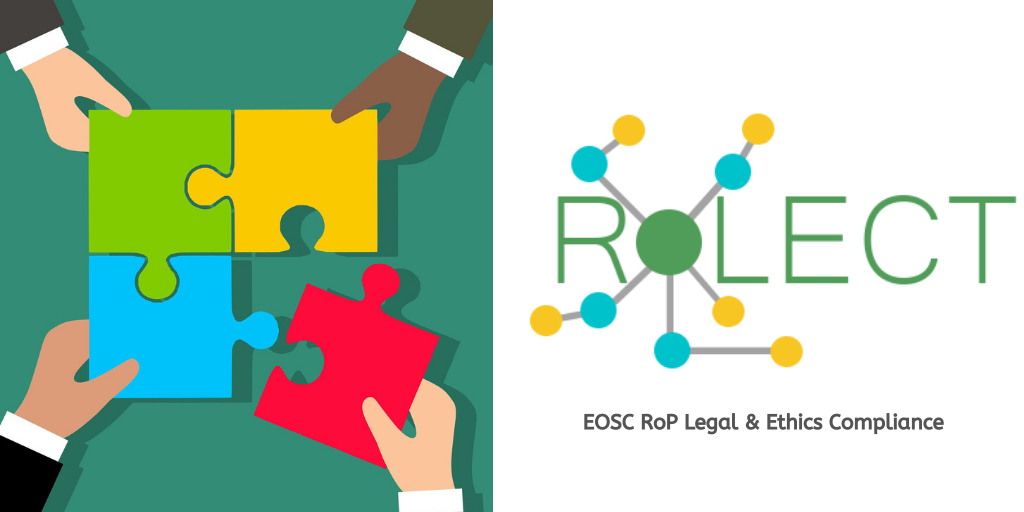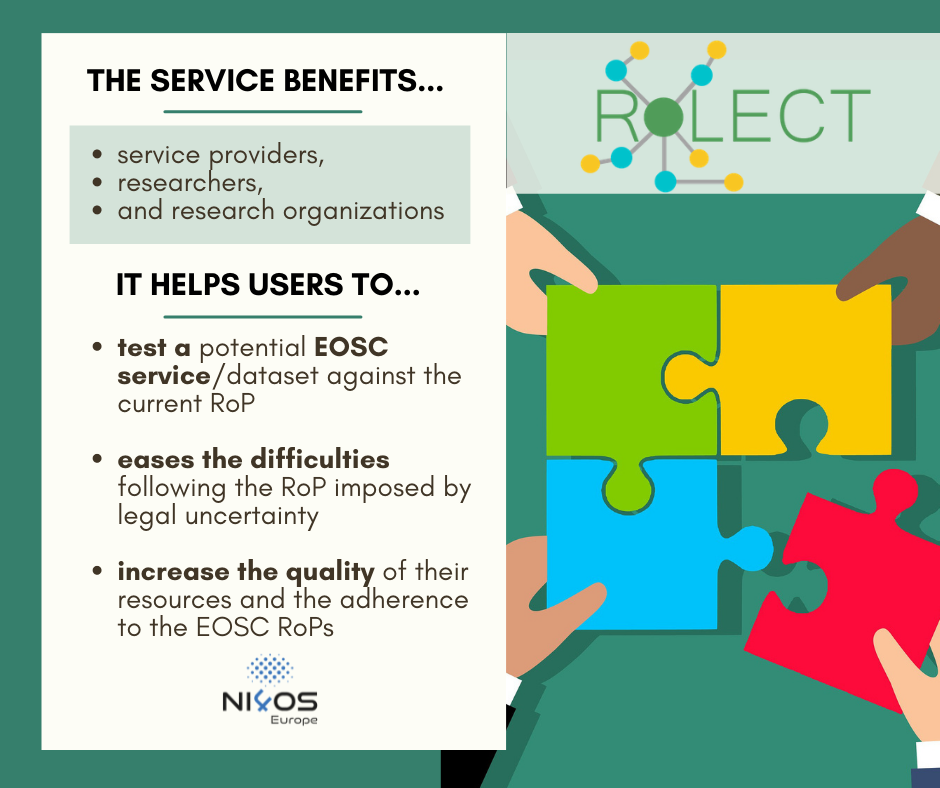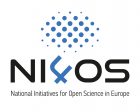
Openness, transparency, and inclusiveness are the key principles that have been defined by the EOSC Rules of Participation (RoP) Working Group. Ensuring these principles can be a particularly demanding task when dealing with legal and ethics aspects. In this context, NI4OS-Europe has developed RoLECT tool in order to assist prospective resource providers in verifying adherence to the RoP during the onboarding process of resources to the EOSC ecosystem focusing on the Legal and Ethics Requirements. The tool provides a guided procedure sequence, where the prospective providers are invited to insert all available information so that a potential EOSC resource (service/dataset/other) can be assessed against the current RoP Guidelines. The scope of the assessment focuses on the most basic obligatory requirements. Nevertheless, further obligatory and common requirements may be assessed in specific cases when the nature of the prospective EOSC service requires so.
How does RoLECT work?
The tool works as a guided self-assessment for EOSC RoP; by asking a series of questions, it helps the users to test a potential EOSC service/dataset against the current RoP. The tool integrates a number of existing modeled procedures, under a structured flow providing logic steps for testing a potential EOSC service/dataset against the current RoP. The platform automatically checks the validity of the provided resources for at least the obligatory steps and aggregates the collected information in a report providing service/data providers with a clear picture of their current state in relation to the most recent RoP.

Legal and ethics are two important aspects in the RoP that require particular focus due to their nature and the difficulties associated (specialised knowledge, experience, etc.) and as such, they have not yet been addressed adequately from other FAIR-related tools. As such the RoLECT provides a specialised service for a need that has not been covered yet by other relevant tools.
Specifically the tool helps:
- service providers. It may reduce production and maintenance costs by mitigating the need for specialised counselling; it reduces response time to adapting to changes in the RoP.
- researchers. It provides training for the RoP; it is a quick and clear way of understanding the various aspects of the RoP a research product must comply with, if aiming for EOSC onboarding.
- research organizations. It reduces the need for legal & ethics expertise; it allows a wider range of employees to deal with the RoP.
What gaps does it aim to eliminate?
According to the EOSC RoP working group “the Rules of Participation shall embrace the principles of openness, transparency and inclusiveness. They shall guarantee an open, secure and cost-effective federated EOSC with services of documented quality, while leaving room for differentiating the rules to apply to different EOSC users”. Based on this, NI4OS-Europe developed the RoLECT tool that allows the providers of different resources to the EOSC ecosystem to ensure their compliance with the key legal and ethical aspects of the respective RoP.
Links:
- Explore the tool as guest user or authenticated user at: https://rolect.ni4os.eu/rolect/auth/login
- Click and see RoLECT presentation at EOSC Symposium 2021
